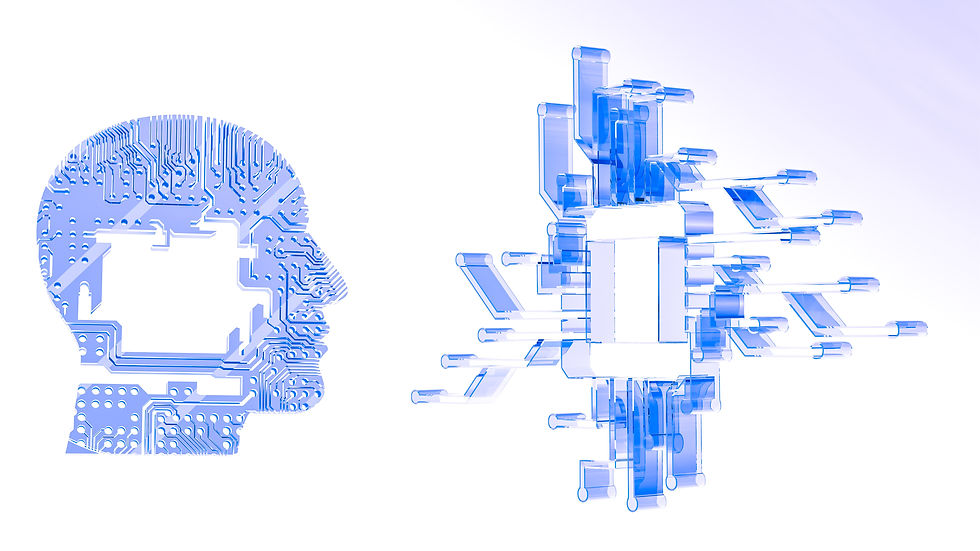Digital Twins for Sustainability: Using AI Avatars and Visuals to Educate and Drive Eco Choices
- nita navaneethan
- May 14, 2025
- 3 min read

Digital twins—virtual representations of physical systems—have transformed industries like aviation, architecture, and health. But in sustainability, their potential is just beginning to unfold. From energy dashboards to eco-personalisation, digital twins can help people see the consequences of their choices in real time—and change behaviour accordingly.
When paired with AI-generated avatars and visuals, these twins become not just technical models but emotionally intelligent guides. In this blog, we explore how brands can use AI-powered digital twins to educate, nudge, and empower users to make better environmental decisions.
What Is a Digital Twin in Sustainability?
A digital twin is a dynamic virtual model that mirrors real-world systems—buildings, supply chains, or even human behaviour. In the context of sustainability, it can be visualised:
A user’s carbon footprint
A product’s supply chain lifecycle
An office’s energy consumption
A city’s emissions flow
By pairing data with real-time feedback, digital twins help people understand their environmental impact in a personal and actionable way.
The Power of AI Avatars and Art in Twin Systems
Adding AI art or avatars to these twins makes them:
Relatable: People engage better with characters and faces
Visual: Metaphors help make abstract data concrete
Interactive: Avatars can react to user choices in-app or online
Narrative-driven: Stories and emotion drive lasting change
Example: Instead of a bar chart showing energy use, imagine an AI avatar whose digital home dims or brightens based on your consumption choices.
Where Brands Can Apply Digital Twins with AI Visuals
1. Sustainability Trackers
Let users build a personalised AI twin based on:
Daily commuting
Diet (plant-based vs. meat)
Shopping habits
Device usage
Visualise their impact via animated loops or before/after environments.
Example: A green energy company shows customers their personalised home energy impact via a living twin dashboard.
2. Product Journey Visualizers
Show how a product moves through its lifecycle—design, production, shipping, usage, and disposal—using a visual twin of the object.
Overlay this with:
Impact scores
Emission comparisons
End-of-life options
Example: A sneaker brand lets users visualise their product’s footprint and suggests how to upcycle or return for credit.
3. Campaigns Featuring AI Climate Avatars
Brands can create an avatar to guide users through climate content, educating via:
Short reels
Micro-sites
Chat interfaces
Gamified apps
The avatar can change expression, clothing, or environment based on the user’s choices or quiz performance.
Real-World Examples of Sustainability Twins and AI Visuals
Siemens uses industrial digital twins to optimise energy systems across factories.
IKEA’s carbon tracking interface visually shows shoppers how home products impact emissions.
Unilever is exploring digital product passports to show provenance and impact at a glance.(Source: Forbes on Digital Product Twins)
Designing Your Brand’s Sustainability Twin
Step 1: Choose the Twin Type
Individual user
Product lifecycle
Workspace/building
Logistics or operations
Step 2: Collect the Data
Energy
Emissions
Waste
Water use
Travel patterns
Step 3: Create the Visual Language
AI avatar design
Dynamic environments (forests, oceans, homes, etc.)
Animation or responsive UI
Step 4: Build Interactivity
Scenario toggles
Rewards for improvements
Community challenges
AI Tools for Creating Sustainability Twins and Avatars
Tool | Use Case |
MidJourney | Stylised visual metaphors (e.g., growth, decay) |
Leonardo AI | Consistent character designs and props |
RunwayML | Animate avatars, build environments |
Ready Player Me | Build web avatars and export to digital platforms |
Spline / Three.js | Real-time 3D twin rendering in the browser |



Comments